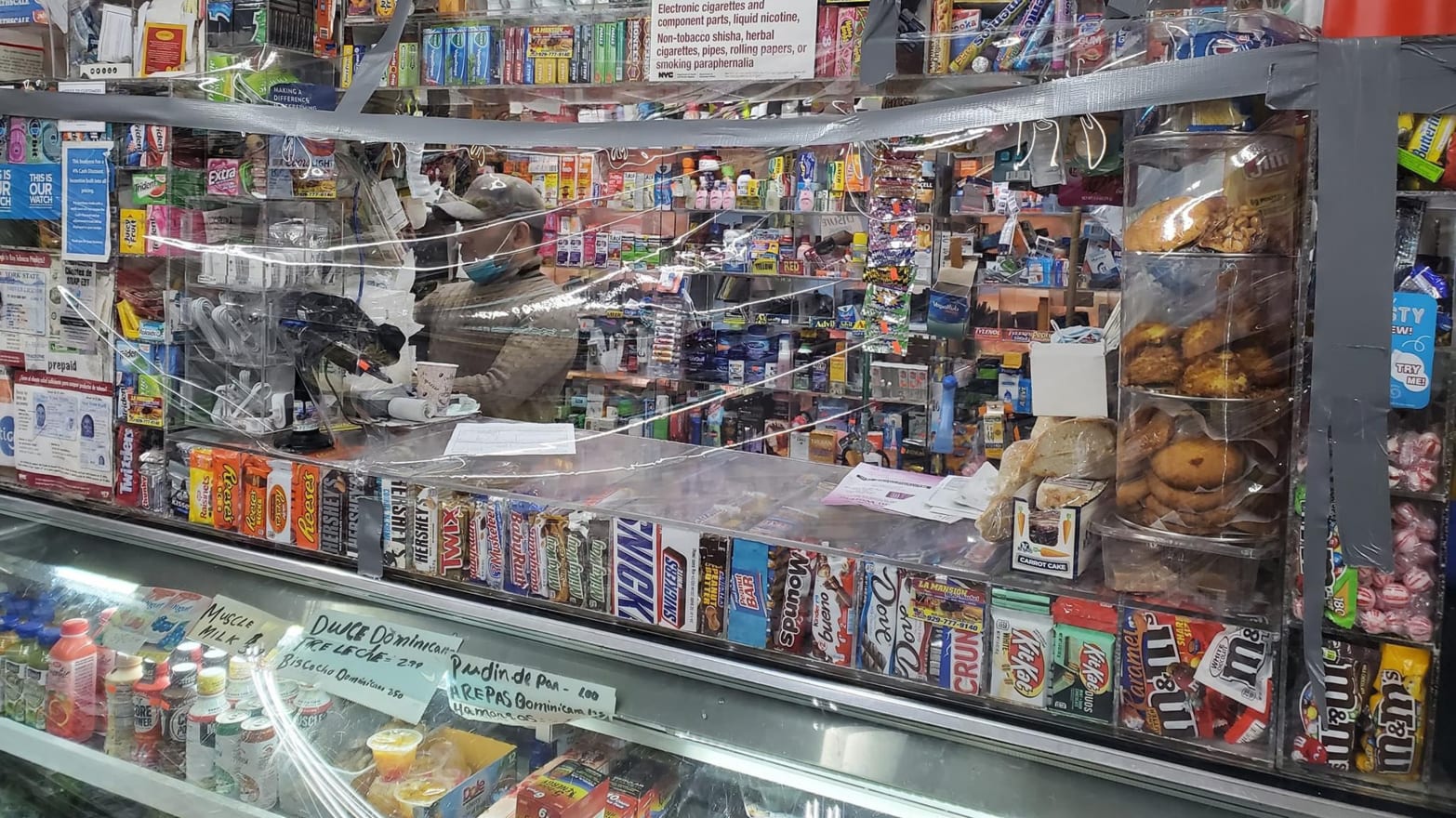Ordinary people doing extraordinary things sums up so much of what we’ve seen during the coronavirus crisis in America. Health-care workers working round the clock, with some sadly losing their lives to the virus are the most notable. But there are other essential workers toiling quietly with no fanfare while ensuring food and medical supply lines remain intact, from truck drivers to postal workers to those working at businesses like Amazon. While many of us shelter safely at home, these people are risking contracting COVID-19.
In New York City there’s another group of people displaying this type of valor, although for some it’s not a matter of choice but economic survival. I’m talking about New York’s bodega owners. For those unfamiliar, “bodega” originates from the Spanish word for “storeroom” or “wine cellar” but in New York City, we know them as small, generally 24-hour grocery stores that carry just about everything from milk to fruit to nail scissors to you name it!
Plus, for some reason, many of the 16,000-plus bodegas have a pet cat wandering around the store. These typically family-run stores first start popping up in the Big Apple in the 1940s and ’50s in Hispanic communities and were primarily owned by Hispanic-Americans.
As New York City began to evolve, however, so did the ownership of the bodegas. Now, as Debbie Almontaser, one of the founders of Yemeni American Merchants Association of New York (YAMA) explained, approximately 50 percent of the city’s bodegas are owned by Yemeni-Americans, with the remainder split between Hispanic and Asian-Americans.
These small business owners now find themselves choosing between risking their lives to make a living or closing down and leaving various neighborhoods in New York City in a food desert. Ali, a Yemeni-American immigrant bodega owner for 14 years in Brooklyn, explained that, “I stay open to help the community… I don’t think about money. I think about the health of the community.” Nasim Almuntaser, whose Yemeni immigrant parents own bodegas in Brooklyn, told me that his parents understand the danger of remaining open, but have chosen to do so because the bodegas are in areas where the neighbors have literally no other options to buy food within walking distance.
The bodega owners are keenly aware of the risks posed by the coronavirus. “Interacting daily with the public in the small, confined stores means there’s a high chance any bodega worker can catch the virus from someone,” Almuntaser explained while expressing concerns for his own parent’s health.
In an effort to protect themselves, bodega owners have resorted to “hanging plastic sheets from the ceiling down to the counter to prevent contracting the virus,” Youssef Mubarez of YAMA explained. But will that actually protect the bodega owners them from the deadly virus? No one knows for sure, but what is certain is that at least 65 Yemeni-American bodega owners and workers have contracted COVID-19 and, worse, at least a dozen have died from the virus.
As a result, YAMA has created an online campaign to raise money to purchase personal protective equipment for the bodega owners—as well as other essential workers on the front lines—to help them buy equipment needed to stay safe while working such as masks.
For many bodega owners in the Yemeni community, they have the added pressure to remain open because they are not just supporting their family’s here but also sending desperately needed funds back to loved ones in Yemen. Adding to this burden is that Trump’s Muslim ban bars entry of Yemenis to America unless they qualify for a hard-to-come-by waiver from the Trump administration.
The real-world impact is that is that Yemenis who have fled their war-torn country in the hopes of being reunited with Yemeni-American relatives are forced to live in other countries in the region while this long waiver process plays out. As a result, as Debbie Almontaser explained, many bodega owners are now bearing increased costs of paying for family members to live in countries like Egypt and Jordan where they are charged “top dollar” to live temporarily until—if ever—they get a waiver to move to America.
But still, hundreds of New York City’s bodegas have closed over the past few weeks as sales have plummeted, especially in tourist areas like Times Square, which is now deserted. Others are struggling to stay afloat, while some, as Nazim Almuntaser explained, have seen a spike in business because no other food stores in the immediate area are open. Ali, the bodega owner in Brooklyn, noted while his business is down about 50 percent, he will “stay open forever.”
Those bodegas that close understand it’s unlikely they will ever open again because they won’t qualify for small business loans or grants. As YAMA’s Almontaser explained, these “mom and pop” bodegas were not using payroll services or business software to keep track of sales, salaries, inventory, etc.
Rather as she noted, “their accounting system was a ‘black notebook.” Given this lack of record keeping, she explained it will make it a struggle if not impossible for these bodega owners to prove their loses and successfully receive federal or city small business aid. Almontaser noted that this is not unique to the Yemeni-owned bodegas but is commonplace in the bodega community. YAMA is lobbying NYC’s Mayor Bill deBlasio and other elected officials to address this glaring problem.
The American Dream comes in all different forms in New York City. The bodega owners, primarily immigrants, constitute just one story of people coming to America in search of a better life than their ancestral country could’ve afforded them. And now many of them are risking their health and their lives to both keep that dream alive and help their neighbors desperate for food. These bodega owners, along with others who daily risk their health to help the rest of us during this deadly pandemic, are courageous patriots who truly represent the best of America.

